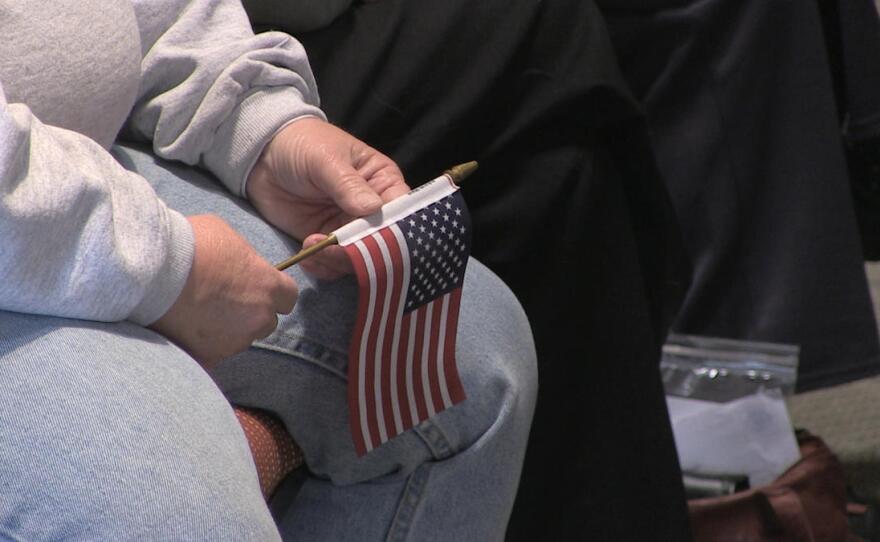
A recent study by the Urban Institute found cities reap significant economic benefits when eligible residents become naturalized U.S. citizens. Nationally, there are about 8.8 million immigrants eligible to become U.S. citizens. But each year, only 10 percent of them take that step.
Raksmey Chan is one of that 10 percent. She came to the U.S. from Cambodia three years ago to live with her husband and son in Artesia, New Mexico. She recently took the oath of citizenship in Las Cruces.
“It is great! I am happy to be one of the people, to be an American citizen,” Chan said.
As a citizen, Chan now has the right to vote. She can also get federal student loans, hold on to all her retirement income and petition for family members to come to the U.S. But the benefits of naturalization go much further.
“Legal immigrants are a tremendous boon for the U.S. economy,” said New Mexico State University professor Chris Erickson.
He said naturalization is a mechanism cities can use to harness immigrants’ full potential and promote local economic development.

The Urban Institute report found increased naturalization could increase employment by 2.2 percent, home ownership by 6.3 percent and the naturalized individuals’ earnings by almost 9 percent.
“lf you earn more… you are going to pay more in taxes, you are going to pay more in income tax, you are going to pay more in sales taxes. You're buying more stuff and you are probably paying more in property taxes. If incomes are higher it tends to boost up properties. Overall in promoting income growth is a benefit to government in terms of generating additional revenue,” Erickson said.
Erickson said new citizens’ resulting sense of security and willingness to make long-term investments can reap even broader economic benefits.
“They have more of a stake in society so they invest more in society,” Erickson said.
Those investments often involve starting new businesses, innovating technologies or working in high-skilled jobs. Immigrants started more than 2.4 million businesses in the U.S. between 2006 and 2010, according to a UC Santa Cruz report .
Chan and her husband opened a doughnut shop in Artesia, and are working towards opening another store.

“We can open a couple of more, kind of expanding our business and get more income to support the family,” Chan said. “We work hard, and that is what everybody dream of coming to this free land and get opportunity to do what they want and feel free.”
The Urban Institute study also found that naturalization can sometimes result in higher use of government assistance. But the researchers said those costs are heavily outweighed by increased tax contributions through higher earnings and spending.
“The net contribution of immigrants is positive,” Erickson said.
At least 20 U.S. cities including Denver, New York and Los Angeles have initiatives aimed at increasing citizenship.






